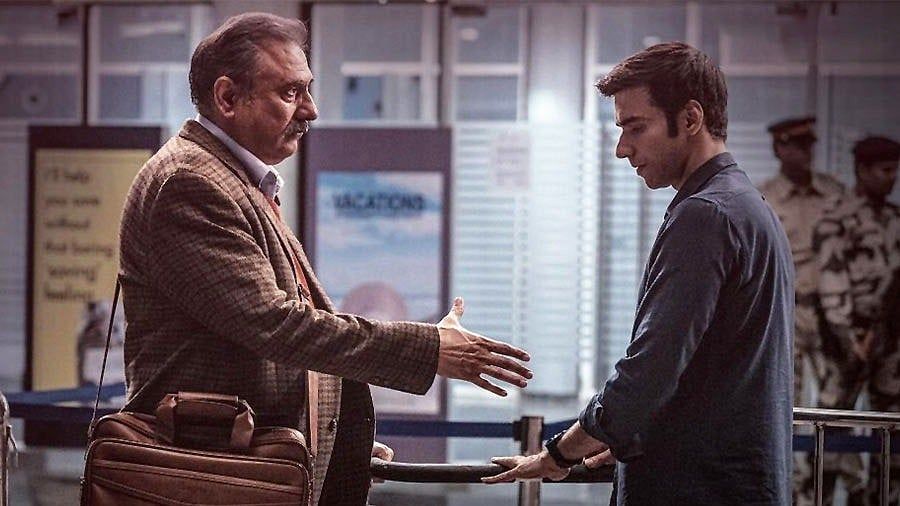
Title: The Mehta Boys
Director: Boman Irani
Cast: Boman Irani, Avinash Tiwary, Puja Sarup, Shreya Chaudhary
Where: Amazon Prime
Rating: 3.5 Stars
Boman Irani’s The Mehta Boys is a film that doesn’t just unpack a father-son relationship; it rummages through it, shakes out the dust, and folds it back with a knowing sigh. At its core, it’s an initial 48-hour pressure cooker of unresolved emotions, passive-aggressive jabs, and the reluctant realization that love often thrives in silence, in half-smiles, in the space between words.
Shiv Mehta (Irani), a widowed, irascible father, and his son Amay (Avinash Tiwary), a diffident architect, are forced into an impromptu cohabitation. The setup crackles with the promise of disaster, yet instead of a high-voltage showdown, the film simmers in the awkward tenderness of two men too proud to articulate their affections. Their relationship is less of a battle and more of a cautious negotiation, with Shiv’s sharp tongue and Amay’s diffidence forming the jagged edges of their estrangement.
Irani, in his directorial debut, crafts an intimate portrait of generational discord. He lets scenes breathe—sometimes a little too much—allowing the silences to speak louder than the words. Their clashes are authentic, echoing conversations we’ve all had (or avoided having) with our parents. The film sidesteps melodrama in favour of restrained realism, though its pacing stumbles. What begins with a crisp, unsentimental rhythm slackens midway, stretching certain moments longer than they need to be.
The cinematography is a mixed bag—some frames capture the Mehta household’s melancholy with atmospheric precision, while others feel serviceable at best. However, the writing, co-crafted by Irani and Oscar-winner Alexander Dinelaris, elevates the film beyond its visual missteps. The dialogue is unembellished yet profound, riddled with everyday irritations that mask deeper wounds. The women in this world—Amay’s sister Anu (Puja Sarup) and his girlfriend Zara (Shreya Chaudhry)—aren’t relegated to the sidelines but serve as emotional compasses, guiding the Mehtas through their labyrinth of stubbornness.
Irani delivers a performance that is at once infuriating and endearing, embodying a father who weaponizes sarcasm to mask vulnerability. Tiwary, in contrast, plays Amay with a quiet, unassuming presence, his simmering frustrations and tentative reconciliations unfolding organically. Their chemistry is undeniable—every glance, every sigh, every unspoken apology is felt.
The Mehta Boys is a film about love that never needs to be said out loud. It resonates in the way Amay hesitates before calling his father “Papa,” in the way Shiv refuses to admit he is proud of his son. But does it leave a lasting imprint? Not quite. It is tender, well-performed, and at times deeply moving, but it doesn’t dig deep enough to devastate truly. The film’s emotional climax, though heartfelt, doesn’t quite pierce through the skin—it lingers, but never quite latches on.
Still, for all its minor flaws, the film is a commendable debut for Irani as a filmmaker. It captures the fragile, infuriating, and deeply human bond between fathers and sons with sincerity, making its bittersweet ending land with quiet grace.